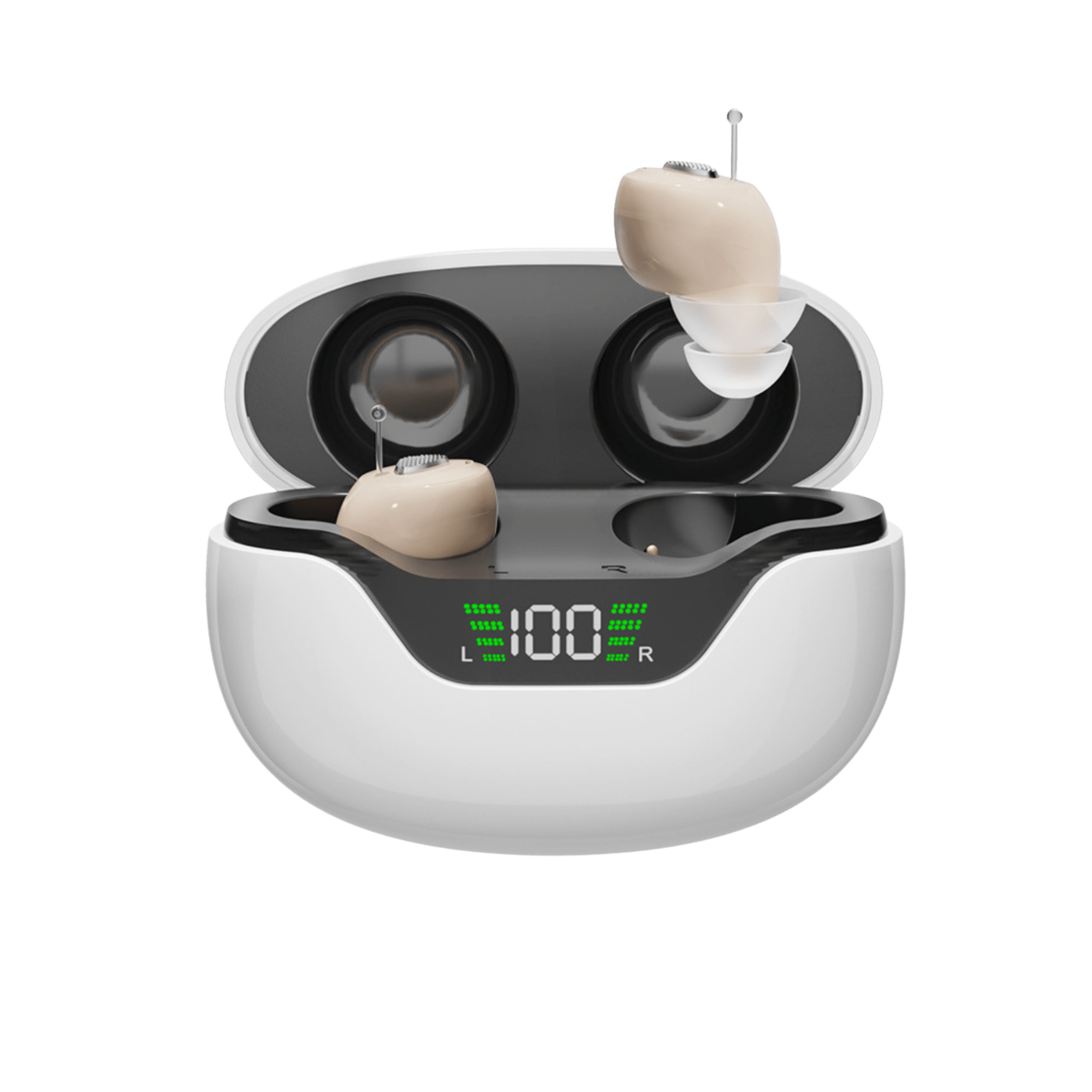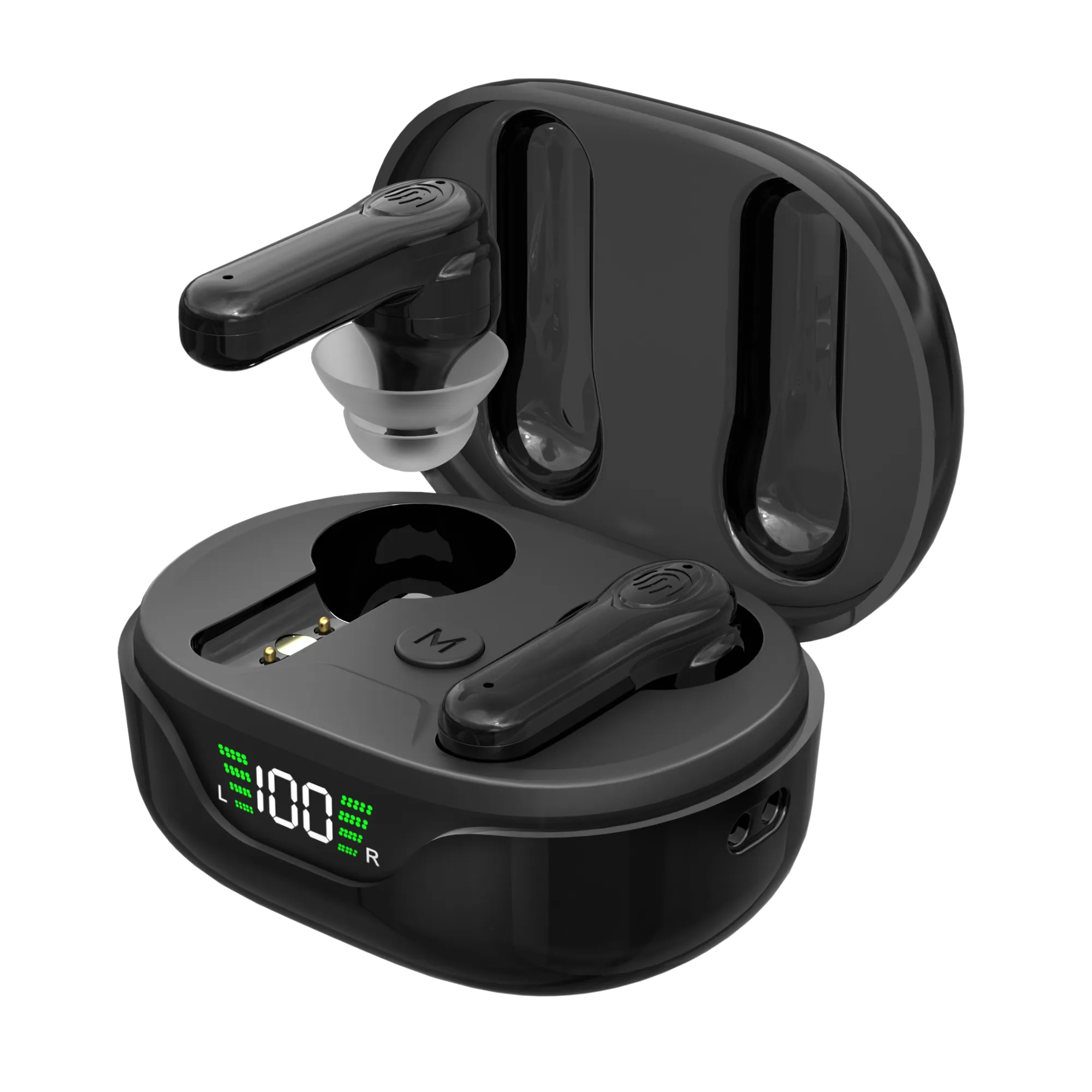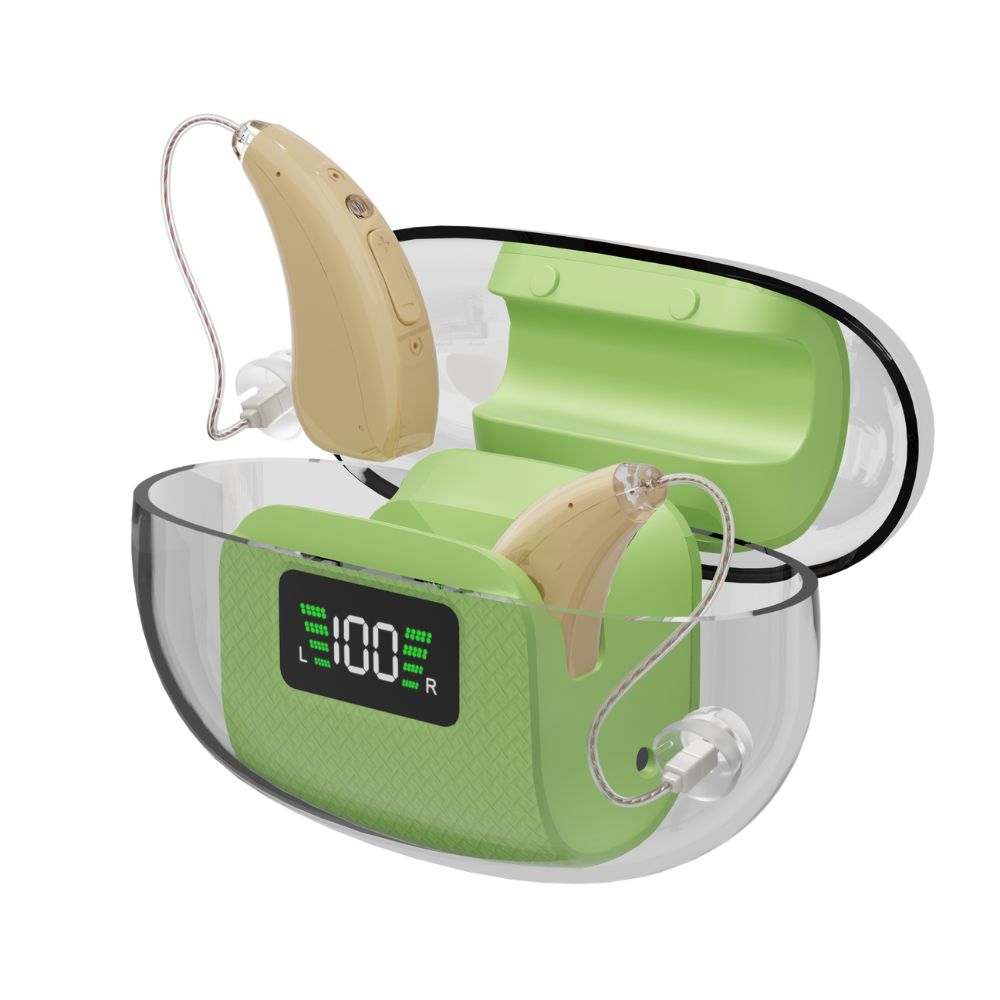Czym naprawdę jest szum w uszach?
Szum uszny to każdy dźwięk słyszany bez zewnętrznego źródła. Może on przypominać:
-
Dzwonienie
-
Brzęczenie
-
Syczący
-
Statyczny
-
Szum
-
Gwizdanie
-
Brzęczący
Większość szumów usznych ma charakter subiektywny – co oznacza, że słyszy je tylko użytkownik. Szumy uszne obiektywne, w których dźwięki pochodzą z ruchu mięśni lub naczyń krwionośnych, są niezwykle rzadkie i można je leczyć farmakologicznie.
Czy szumy uszne są niebezpieczne?
W większości przypadków szumy uszne nie są niebezpieczne i nie świadczą o poważnych problemach zdrowotnych.
Należy zasięgnąć porady lekarskiej, jeżeli szum w uszach:
-
Tylko w jednym uchu
-
Pulsuje w rytm Twojego serca
-
W połączeniu z zawrotami głowy, problemami ze wzrokiem lub nagłą utratą słuchu
Często te przypadki okazują się łagodne, ale należy je zbadać.
Co powoduje szumy uszne?
Istnieją dwie główne ścieżki:
1. Deaferentacja (związana ze słuchem)
Najczęściej. Twój mózg potrzebuje stymulacji dźwiękowej. Kiedy bodźce słuchowe słabną (nawet nieznacznie lub w wyższych częstotliwościach, których możesz nie zauważyć), mózg zwiększa wrażliwość i wytwarza pozorny dźwięk.
Typowy wzór:
-
Wysoki dźwięk dzwonienia lub gwizdania
-
Pasuje do częstotliwości, przy której słuch spada
-
Często wiąże się z wczesną utratą słuchu lub utratą słuchu w zakresie wysokich częstotliwości
Dlatego wzmocnienie dźwięku i terapia dźwiękiem — takie jak te stosowane w aparatach słuchowych Panda — pomagają uspokoić mózg i zmniejszyć odczuwanie szumów usznych.
2. Szum uszny związany ze stresem
Wywoływane przez stres, lęk, traumę lub ważne wydarzenia życiowe.
Typowy wzór:
-
Więcej szumów szerokopasmowych (szum, szumy)
-
Układ nerwowy zablokowany w trybie walki lub ucieczki
-
Mózg „zwiększa objętość wewnętrzną”, gdy filtrowanie słabnie
Zarządzanie stresem + terapia dźwiękiem pomagają w przeprogramowaniu spokojnego przetwarzania słuchowego.
U wielu pacjentów występuje mieszanka obu objawów.
Czy szumy uszne można wyleczyć?
Nie ma natychmiastowego lekarstwa ani tabletki, która wyciszałaby szumy uszne.
Istnieją jednak sprawdzone sposoby na zmniejszenie nasilenia szumów usznych , często polegające na:
-
Ledwo słyszalny dźwięk tła
-
Słyszane tylko w ciszy
-
Nie wywołuje niepokoju emocjonalnego
Większość ludzi może osiągnąć:
-
Redukcja z ciężkiego (8–10/10) do łagodnego (1–3/10)
-
Znaczna ulga w ciągu 3–6 miesięcy
Dlaczego cisza pogarsza szumy uszne
Jeśli mózg nic nie słyszy, poszukuje dźwięku wewnętrznego. Cisza wzmacnia szum uszny.
Terapia dźwiękiem polega na dostarczaniu łagodnego, stałego dźwięku, który pomaga mózgowi się zrelaksować i z czasem zmniejsza nasilenie szumów usznych.
Aparaty słuchowe Panda oferują:
-
Spersonalizowane wzmocnienie w celu przywrócenia brakującego sygnału dźwiękowego
-
Opcje maskowania dźwięków miękkich
-
Naturalna redukcja hałasu dla komfortu
-
Ustawienia adaptacyjne dla cichych i sprzyjających spokojowi miejsc
Siedem powszechnych nawyków, które nasilają szumy uszne
1. Słaby sen
Brak snu zwiększa reaktywność układu nerwowego.
Ulepsz dzięki:
-
Stały harmonogram
-
Przyciemniaj ekrany w nocy
-
Miękki szum tła
2. Wysoki poziom stresu
Stres wzmacnia obwody szumów usznych.
Ćwicz oddychanie, uważność, chodzenie lub rozciąganie.
3. Zbyt dużo ciszy
Cisza = mózg wywołuje szumy uszne.
Zastosuj terapię dźwiękiem lub delikatny szum otoczenia.
4. Izolacja społeczna
Izolacja zwiększa stres i świadomość wewnętrznych dźwięków.
Bądź aktywny i towarzyski.
5. Ciągłe sprawdzanie dźwięku
Monitorowanie szumów usznych nasila je.
Zmień fokus, użyj dźwięku w tle.
6. Fora poświęcone szumom usznym z przewijaniem
Negatywne historie podsycają strach.
Zamiast tego skorzystaj ze spokojnego, nastawionego na sukces poradnictwa.
7. Narażenie na głośny hałas
Chroń uszy na koncertach, siłowniach, w barach i na placach budowy.
Sprawdzone metody łagodzenia bólu
Techniki poznawczo-behawioralne (resetowanie nastawienia)
Przeprogramowuje reakcje oparte na strachu na myśli neutralne.
Przykładowa zmiana:
„Nigdy więcej nie zaznam ciszy”
Do
„To dźwięk, do którego mogę się przystosować i żyć pełnią życia”.
Terapia dźwiękiem
Wykorzystuje łagodny szum o częstotliwości szumu usznego, aby nauczyć mózg jego filtrowania.
Obsługa aparatów słuchowych Panda:
-
Wzbogacanie dźwięku dopasowane do szumów usznych
-
Ciche wypełnienie dźwiękiem
-
Adaptacyjne wsparcie słuchu
Wsparcie słuchu
W przypadku utraty słuchu lub zmniejszonego sygnału wejściowego wzmocnienie dźwięku pomaga znacząco złagodzić szumy uszne.
Dlaczego aparaty słuchowe Panda pomagają
Aparaty słuchowe Panda łagodzą szumy uszne poprzez:
-
Przywracanie brakującego sygnału dźwiękowego do mózgu
-
Zapewnianie kojącego wzbogacenia dźwiękowego
-
Poprawa spokojnego otoczenia słuchowego
-
Zmniejszanie zmęczenia i stresu słuchowego
-
Wspieranie codziennych nawyków w sposób naturalny
Ludzie przystosowują się do szumów usznych nie poprzez walkę z ciszą — przystosowują się poprzez dostarczanie mózgowi potrzebnych mu bodźców.
Poprawa szumów usznych zależy od wskazówek i konsekwencji
Nie musisz ograniczać się do tego, jak odczuwasz szum w uszach dzisiaj.
Badania naukowe dowodzą, że ulgę można uzyskać dzięki:
-
Zdrowy sen
-
Redukcja stresu
-
Wsparcie dźwiękowe
-
Nawyki związane z koncentracją poznawczą
-
Czas i delikatna ekspozycja
-
Regularne, codzienne stosowanie terapii dźwiękiem
Aparaty słuchowe Panda zapewniają ustrukturyzowane i praktyczne rozwiązanie wspomagające te nawyki każdego dnia.
Jeśli szumy uszne zakłócają Twój spokój, sen lub koncentrację, rozważ podejście oparte na:
-
Wzbogacanie dźwięku
-
Adaptacja neuronalna
-
Wsparcie dla spokojnego układu nerwowego
Ulgę można osiągnąć, jest ona realna i możliwa do osiągnięcia dzięki konsekwentnym działaniom.




